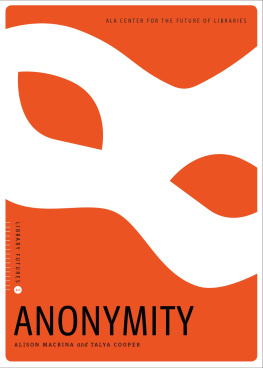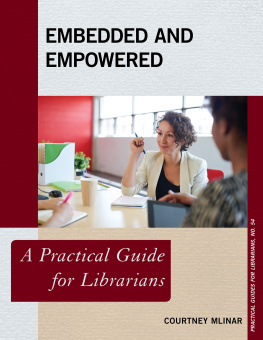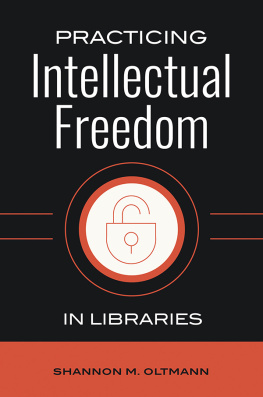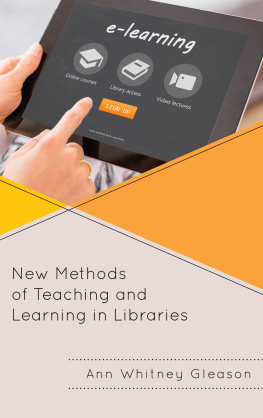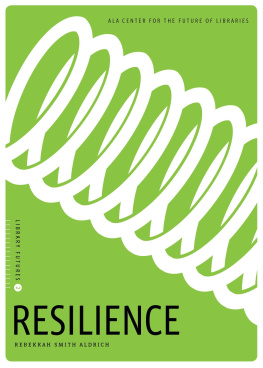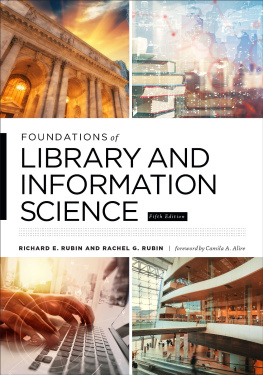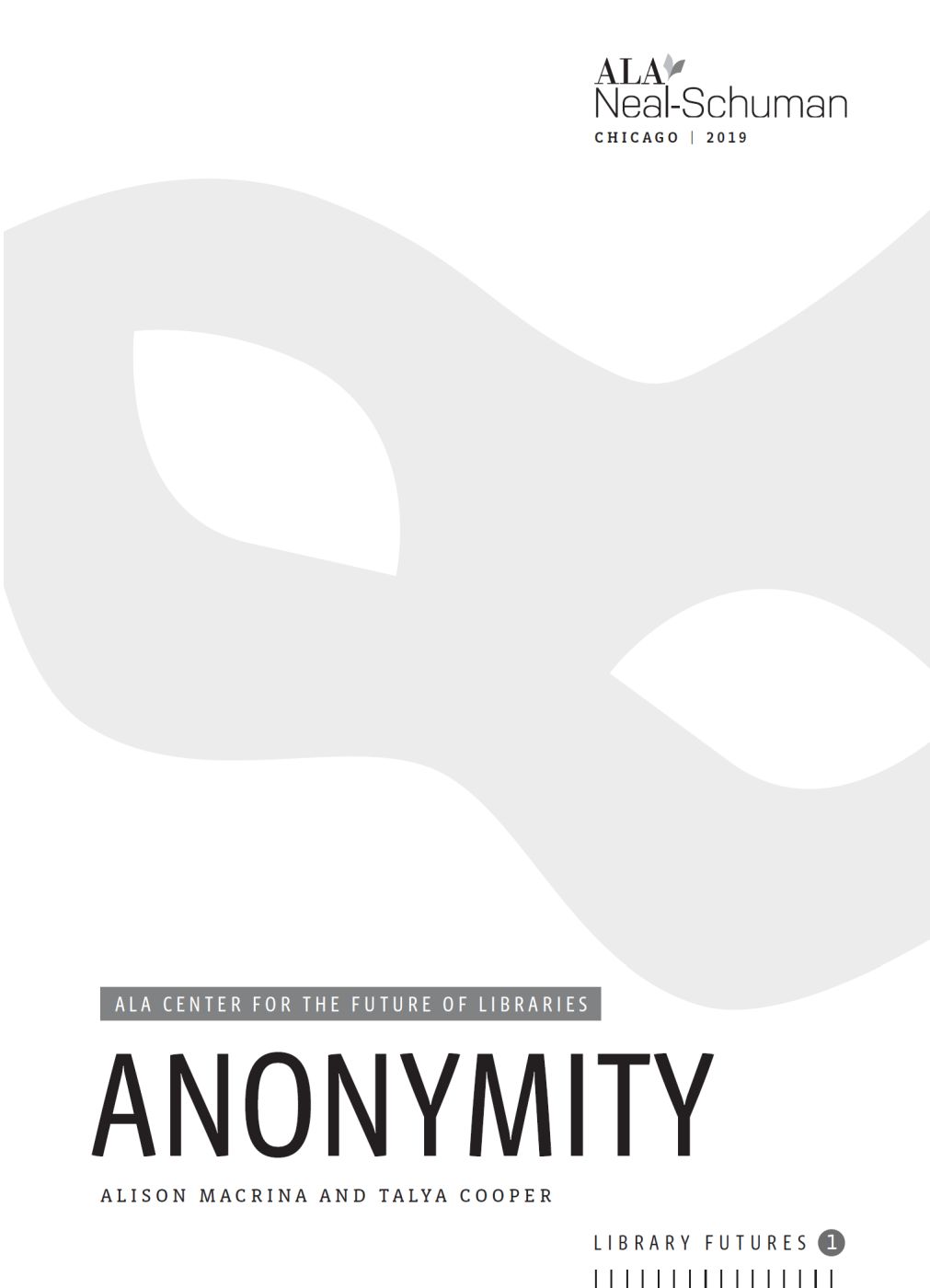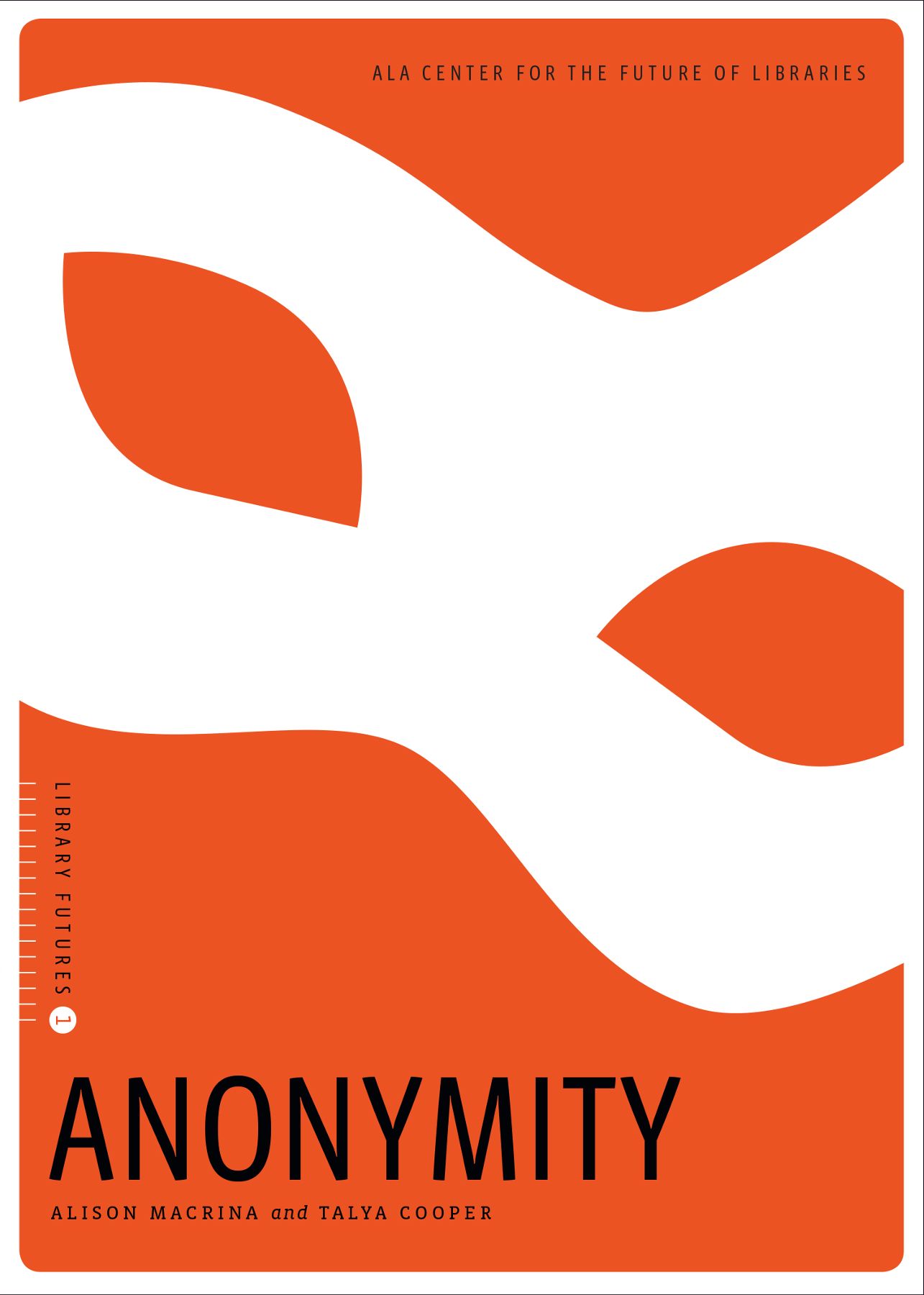
BOOKS IN THE LIBRARY FUTURES SERIES
Resilience, by Rebekkah Smith Aldrich
Anonymity, by Alison Macrina and Talya Cooper
Blockchain (forthcoming), edited by Susan Alman and Sandra Hirsh
Design Thinking (forthcoming), by Rachel Ivy Clarke
ALISON MACRINA is the founder and director of Library Freedom Project and a core contributor to The Tor Project. Her work aims to connect privacy and surveillance to larger struggles for justice. She has been awarded the Free Software Foundations Award for Social Benefit and the New York Library Associations Intellectual Freedom Award, and she was a Library Journal Mover and Shaker.
TALYA COOPER is an archivist based in New York City. Previously, she was the digital archivist at the Intercept, where she managed the Snowden archive, and the archive manager at StoryCorps. She has written and presented about the intersections of archival ethics, privacy, and security.
2019 by the American Library Association
Extensive effort has gone into ensuring the reliability of the information in this book; however, the publisher makes no warranty, express or implied, with respect to the material contained herein.
ISBNs
978-0-8389-1633-9 (paper)
978-0-8389-1932-3 (PDF)
978-0-8389-1930-9 (ePub)
978-0-8389-1931-6 (Kindle)
Library of Congress Cataloging in Publication Control Number: 2019019623
Cover design by Kimberly Thornton.
ALA Neal-Schuman purchases fund advocacy, awareness, and accreditation programs for library professionals worldwide.
CONTENTS
BY MIGUEL A. FIGUEROA
Center for the Future of Libraries
American Library Association
Theres a common through line in todays techno logical trends and developments that promise improved convenience and efficiencies: they trade on access to a broadening universe of public and private information and data.
An increase in surveillance systems (an estimated 245 million professionally installed video surveillance cameras were active and operational globally in 2014), and other technology trends will ultimately exacerbate privacy concerns. As our concerns shift from the personal to the public, the resulting conversations may likewise swing from threats to privacy to the end of anonymity.
In Anonymity, Alison Macrina and Talya Cooper guide readers from privacy, a core value for our profession, toward a related appreciation and understanding for anonymity. They show how anonymity, the obscuring or withholding of identity, has implications for individuals, communities, and the libraries that serve them. While anonymity has that very real connection to our professions fundamental value for privacy, the conversations library professionals must have regarding anonymity extend far beyond our users experiences in or even with the library. Our communities exist in a world where lived experiences in public and online have become a valuable source of data for governments, corporations, and other agents to collect and leverage.
Through Understanding Anonymity, Alison and Talya help readers understand anonymity in our users broader lives by providing an immersive vision for how anonymity plays out today and how it might continue to shift for the future. Their insight for how anonymity connects with library values centers the discussion in terms of both privacy and equity, recognizing that different users have varying needs for anonymity at distinct points in their lives.
From practical policies and procedures to technological interventions and educational instruction, Anonymity in Libraries shows how libraries can model anonymitys benefits and liabilities in a changing society. The Tor Project, and other initiatives show the promising directions that help ensure privacy while centering anonymity.
In For the Future, Alison and Talya imagine new opportunities for libraries to advocate by standing up when policies or practices threaten individual rights to privacy and anonymity, educate by raising community awareness of the changing natures of privacy and anonymity, and implement spaces and technologies that make accommodations for anonymity while preserving security for staff and users alike.
It was Alisons work with the Tor Project and the Library Freedom Project that helped me better understand anonymitys significance for libraries. Here, with Talya, whose important advocacy in archives informs this work, they make clear why thinking about our futures requires thinking beyond the normal scope of our users experiences in the library to also consider the library in the lives of our users. I continue to be inspired by leaders like Alison and Talya whose clarity of vision brings our traditions and values boldly into what may likely be a challenging future.
Thank you to the librarians who took the time to speak to us about their experiences: Melissa Morrone, Chuck McAndrew, Shannon ONeill, Bobbi Newman, James Hutter, TJ Lamanna, Lucas Gass, and Rob Caluori.
Talya would like to thank the Intercepts Research Team from 20162019: Research Director Lynn Dombek, Erinn Clark, Akil Harris, Westley Hennigh-Palermo, Sheelagh McNeill, Margot Williams, John Thomason, Mariam Elba, and Alleen Brown.
Alison would like to thank all the librarians who have worked with Library Freedom Project over the years, especially the members of Library Freedom Institute. She is also grateful to her fellow Core Contributors at The Tor Project.
You step outside into the balmy September evening, walk across the church parking lot, and open the door to your car with a sigh. Turning the red chip over as you hold it above the steering column, you think about the relativity of time. The past thirty days have been longer than any others you can remember, and it feels like actual years or even lifetimes have passed. You wouldnt have made it this far without the program and the ability it gives you to speak freely and openly among these strangers, protected by the practice of using only first names. You pop the coin into your wallet and pull out your smartphone, nonchalantly scrolling through Facebook, when something makes you pause over the People You May Know suggestions. Facebook has suggested that You May Know Bill R. and Mike M. from the meeting, except Facebook is telling you their full names, their family members, where theyre employed, and all their likes. And its telling them the same about you.
We live in an age of ubiquitous surveillance: many tiny pieces of our lives are constantly recorded, shared, and stored. We offer some of this information voluntarily in exchange for various services, while private corporations, law enforcement, and government intelligence agencies collect more of it almost invisibly. Libraries should be particularly concerned about the new norms of surveillance. Privacy has been one of the ALAs Core Values of Librarianship since their adoption in 1939. Librarians have long recognized the relationship between privacy and intellectual freedom; when we lack privacy, we cant have intellectual freedom, because we are less likely to read, write, and research freely when we fear that were being watched.
Privacy and anonymity are not synonymous, though. Privacy means that you get to control what information about you is shared. Anonymity, privacys stricter cousin, means that in a given situation, no one knows your real identity. So why isnt this book about privacy rather than anonymity, which sounds like something for secret agents and Internet trolls? Given the current surveillance environment, we believe that anonymity is as important for librarians to understand, support, and promote as privacy in general. Privacy has become a hot topic in libraries, with privacy-focused projects springing up all over the placefrom the Data Privacy Project in New York City, to Library Freedom Project (of which one of this books authors is founder and director), to the San Jose Public Librarys Virtual Privacy Lab. Anonymity, on the other hand, is still something of a curiosity for librariansit is certainly present in the current fervor about privacy, but it is harder to understand and advocate for. Wed like to talk about why anonymity has value on its own, because of the ways that identity is weaponized for surveillance purposes and monetized by big corporations. In order to understand why anonymity matters, its important to know just what is happening to our data on the Internet these days.
Next page
